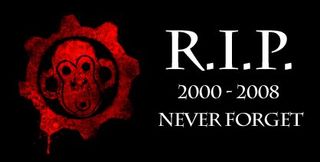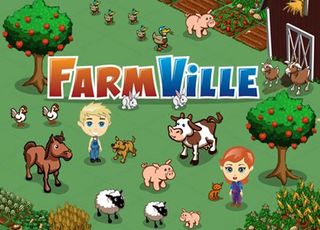No, my main point is that the longer this generation goes on, the more clear it becomes that a new set of machines would be pretty damn dangerous for the health of the industry itself. It would also be pretty damn dangerous for creative game design, and it would be very damn dangerous for your wallet. Here’s why you should go home and give your console a big hug tonight, and forget all thoughts of casting it out into the cold for a new model.
We have no need for new consoles
Having gamed through four generations before this one, I can say with absolute certainty that we’re nowhere near reaching this generation’s potential yet. All that talk of ‘we’re pushing Machine-X to its limits’, you keep hearing from devs? Twaddle and falsehood.
Above: Fan-made Doom on a Spectrum. Proof that machines can keep showing better and better results long after their death
No console generation has ever been pushed to its full potential. They only ever get to perform half their routine before the curtain is dropped in favour of a newer, prettier starlet. Which is a tragedy, because by that point the seasoned pros are really hitting their stride in terms of what they can give us, whereas their clueless replacements always take a couple of years to even start remembering their lines properly.
We now have the most powerful and most versatile set of consoles ever known to man. And we have an online infrastructure that means that for the first time, console evolution is about the fundamental expansion of an existing machine’s functionality rather than simply providing a new box for prettier graphics. Compare the 360 and PS3 at launch to the 360 and PS3 now. Pretty amazing leap, is it not? In terms of hardware potential, we have the healthiest consoles we’ve ever had, and that potential isn’t going to wear thin any time soon.
We can%26rsquo;t afford new consoles
And when I say ‘we’ I mean ‘gaming in general’. Seriously, a new line-up of machines could flatten the industry. Think about how many good quality, big-name developers have gone under this generation already. Compared to previous generations, it’s a bizarrely high number.

Above: Sleep well, sweet Timesplitters monkey. Haze may have killed you, but you'll live forever in our hearts
It used to be that even an average developer (and thinking back to the 8 and 16-bit eras, I’m being generous with ‘average’) could happily muddle along for years with modest sales as long as they kept costs down. But the difference with this generation is that no-one has the option of keeping costs down any more. If you want to make triple-A hardcore games, they need to be in HD, and they always need to be more impressive than your competitors’ last releases.
And the more of your company’s livelihood that hinges on a game, the more impressive it has to be. And the more impressive you have to make it, the more of your company’s livelihood hinges on it. It’s a horrible situation, and it’s exactly the reason Nintendo went SD this gen. And it’s why we now have such an influx of small-scale games for digital download and the likes of Facebook. You can make them without having to sell your children if it all goes wrong.

Above: You chase hardware specs too long, and this is what happens
Being expensive to make means that games are expensive to buy, and there just isn’t room in most people’s wallets to pick up anything other than an obvious mainstream hit, at least until the price drops or it turns up second-hand. And second-hand hurts devs even more. Needing even bigger teams, even bigger wages and even bigger tech, another set of console would push dev costs up to unimaginable levels. But the problem would be even worse that usual this time around.
Next: Why it would be worse this time

